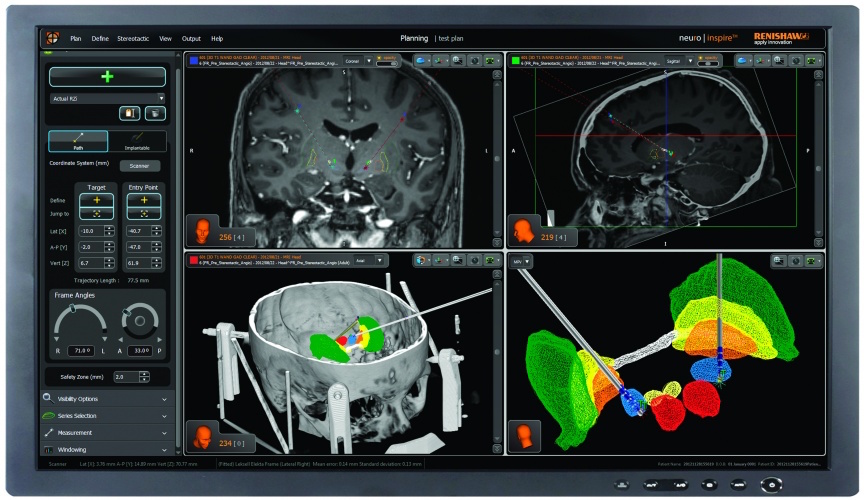Renishaw robot assists SEEG surgery in Wales
A woman experiencing up to six epileptic fits a day is recovering after an operation carried out with the help of Renishaw’s neuromate stereotactic robot.

The stereoelectroencephalography (SEEG) procedure, conducted at The University Hospital of Wales, was the first of its kind to be carried out with robotic assistance in Wales.
Cardiff University’s William Gray, Professor of Functional Neurosurgery, Neurosciences & Mental Health Research Institute used the neuromate robot, which helps to position probes accurately and steadily in the brain using MRI scanning images, during the surgery while he used intracerebral electrodes to measure electrical signals in the brain.
Patient Denise Casey, from Neath, Port Talbot, was diagnosed with skewen epilepsy when she was 31, suffering up to six fits every day for the past 20 years.
With the robotic arm, it took Prof Gray 55 minutes to identify and operate on the epileptogenic zone in a procedure that would normally take four hours.
Follow-up surgery a week later was performed in the hope of relieving Denise of her epileptic symptoms.
Prof. Gray is also a director of the University’s Brain Repair and Intracranial Neurotherapeutics (BRAIN) Unit which brings together experts from Cardiff University, Swansea University, Bangor University and the NHS.
Register now to continue reading
Thanks for visiting The Engineer. You’ve now reached your monthly limit of news stories. Register for free to unlock unlimited access to all of our news coverage, as well as premium content including opinion, in-depth features and special reports.
Benefits of registering
-
In-depth insights and coverage of key emerging trends
-
Unrestricted access to special reports throughout the year
-
Daily technology news delivered straight to your inbox










Water Sector Talent Exodus Could Cripple The Sector
Maybe if things are essential for the running of a country and we want to pay a fair price we should be running these utilities on a not for profit...